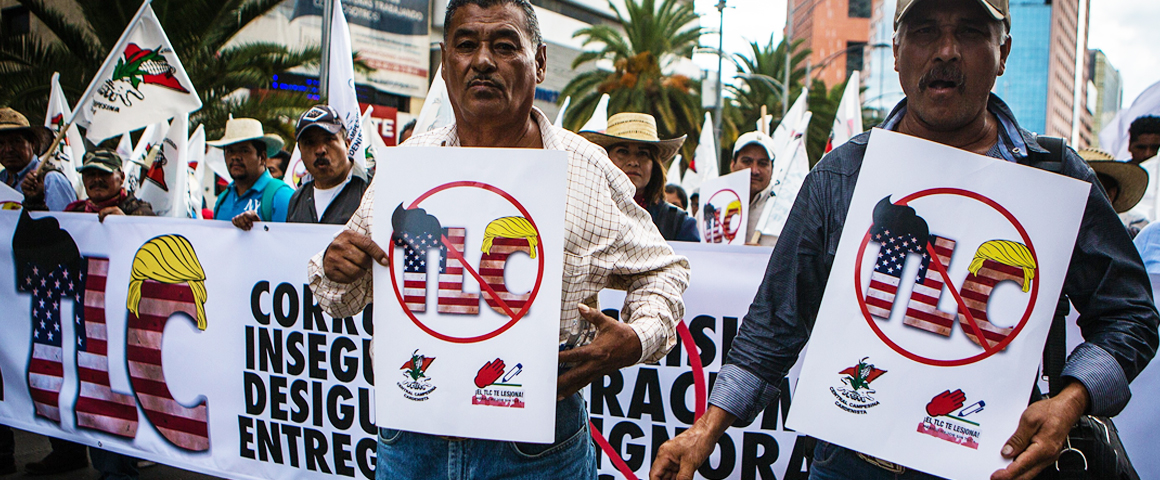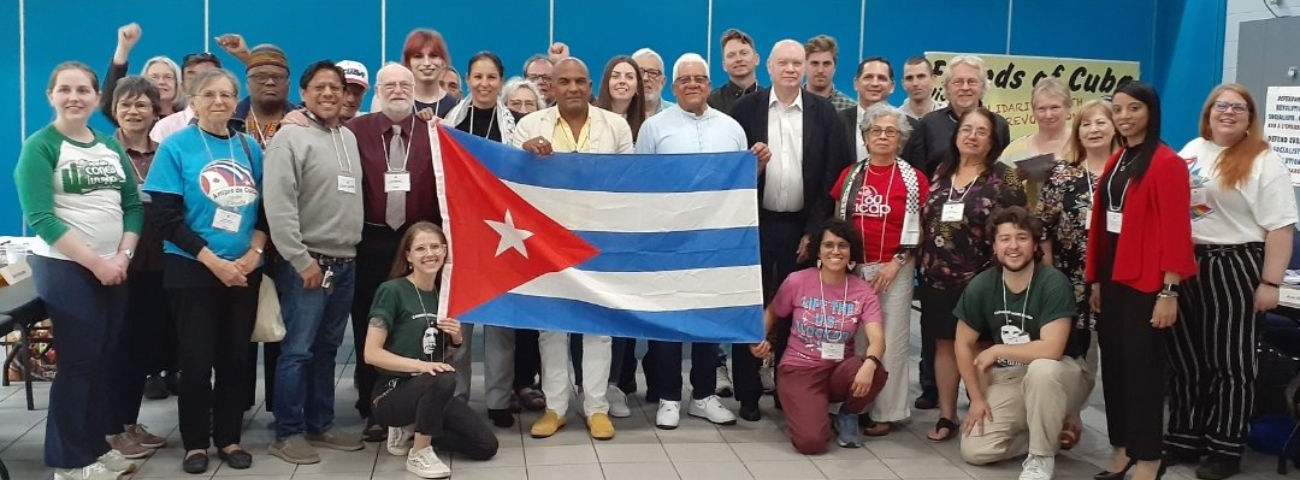Andres Manuel Lopez Obrador (AMLO), the center-left candidate who has consistently led the polls in the July 1 Mexican presidential election, says his country should focus on strengthening the domestic market and the rural economy if NAFTA renegotiations fail. Voters will also elect 128 members of the Senate to six-year terms, and 500 members of the Chamber of Deputies for three years.
“I am going to suggest that the treaty remains, but (the end of NAFTA) cannot be fatal for Mexicans, our country has a lot of natural resources, a lot of wealth,” said Lopez Obrador in the final candidates’ debate.
The NAFTA renegotiations, which started in August 2017, have hampered by Donald Trump’s decision to impose a 35 percent tariff on steel and a 10 percent tariff on aluminum imported from both Mexico and Canada. When the seventh round of renegotiations concluded recently, Trump said he would exempt Mexico and Canada from those tariffs if they agreed to a new NAFTA.
Trump has called NAFTA the “worst trade deal in history” because of the massive deficit with Mexico and supposedly unfair conditions. In 2017, the U.S. bought US$71 billion more imports from Mexico than what Mexico got from the U.S. Mexico has dramatically increased farm exports to the U.S. since 1994, the year NAFTA was implemented, and hundreds of thousands of auto jobs have been created as manufacturers try to take advantage of lower wages south of the border.
But the agreement has never solved Mexico’s structural economic problems, and has even made things worse for millions of people. Between 1993 and 2013, Mexico’s economy grew an average of just 1.3 percent, unemployment has increased, and poverty rates remain at the same level as in 1994.
Even while exports grow, Mexico’s dependency on imports of food has increased, including corn, the country’s dietary staple. Farmers and members of the National Zapatista Liberation Army both opposed the deal, correctly predicting citing its negative impact on small-scale farmers. Now, even the country’s politicians and business elite are discussing these issues again.
Lopez Obrador has declared himself a supporter of a more internal market-oriented economy, and admirer of Mexico’s import substitution policies. His chief economic adviser Gerardo Esquivel said recently that “no NAFTA is better than a bad NAFTA,” but AMLO remains committed to renegotiation of the trilateral agreement, rather than side deals with the U.S. or Canada. But since the winning candidate will not be sworn in until December, the renegotiations may take much longer than first expected.
In the final debate, the contenders presented differing views on changes to Mexico’s healthcare and education systems, and AMLO has since widened his popularity. In mid-June, he was leading neoliberal candidate Ricardo Anaya by a margin of 49%-27%, benefitting from widespread anger with the ruling Institutional Revolutionary Party (PRI) over political corruption, street violence and slow economic growth. However, in recent weeks Lopez Obrador has been hit with a wave of online troll attacks, as his rivals seek to depict him as a volatile, radical menace to the economy.
Business groups have also stepped up their criticisms of AMLO. Victor Almeida Garcia, owner of the ceramic giant Interceramic, and Pedro Luis Martin Bringas, member of the board of Soriana, one of the biggest supermarkets in Mexico, recently warned about the supposed risk of voting for a “populist” candidate. Repeating a frequent alarmist theme used by the corporate elite, Almeida said that Mexico could turn into Venezuela after the elections unless Anaya wins.
The right-wing media and business groups also claim that the opinion polls and online support for Lopez Obrador are fake, the product of “an army of bots working on social networks” to create a false perception that AMLO is winning.
But Soriana’s company was itself involved in major fraud allegations during the 2012 elections, in which the supermarket chain gave away electronic money cards in support of Enrique Peña Nieto, the current president of Mexico.
Disguised as opinion polls, Mexicans are receiving automated campaign calls against Lopez Obrador and his MORENA party. The calls claim to be from the “Mexican Institute for Democracy,” but an investigation by Mexican newspaper El Universal found no records of the institute’s existence. The messages spread fabricated claims that the front-runner is accused of kidnappings and fraud, and that Lopez Obrador plans to declare an amnesty for criminals, kidnappers and drug dealers. Clearly, the Mexican ruling class is deeply worried that this time, it may actually lose an election.
With files from TeleSur.




